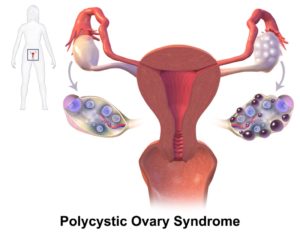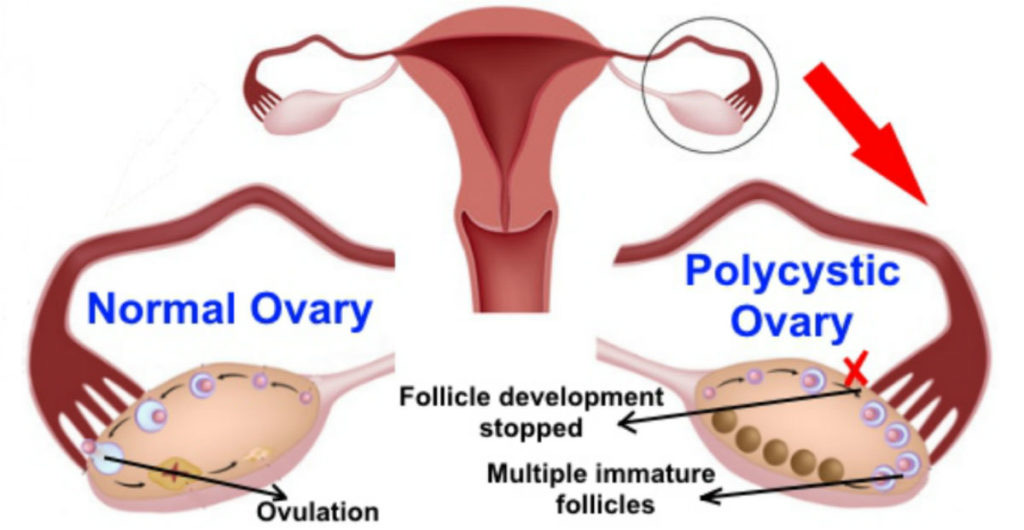How PCOD correlate to Infertility?
Every month, in women of childbearing age, tiny fluid-filled cyst known as follicles develop on the surface of the ovary. Female sex hormones, including estrogen cause one of the follicles to produce a mature egg. The ovary then releases this egg, and it breaks out of the follicle.

PCOD: Polycystic Ovarian disease (PCOD) is a common hormonal disorder among women of reproductive age, incorrectly approached by allopathy system as a localised ‘poly-cyst’. Many young women are treated with hormonal medication causing irreparable side effects or with sugar control drugs for peripheral relief without any perceptible contribution to the quality of life. Too much insulin combined with high levels of luteinising hormone can lead to excess production of male hormone called testosterone in your ovaries, and abnormally high amount of testosterone prevent ovulation. As a result your follicle does not mature and ovulation does not occur, which can lead to infertility. Polycystic ovary syndrome is a disorder that is associate with an imbalance in female sex hormones and unhealthy diet. The imbalance can lead to a variety of symptoms and may affect a woman’s fertility.
In women who have PCOD/PCOS, there is an imbalance in female sex hormones. The imbalance may prevent the development and release of mature eggs. Without a mature egg, neither ovulation, nor pregnancy can occur. The hormone imbalance may also include an abnormal increase in testosterone which is primarily a male sex hormone. Women also produce testosterone, although it is usually in small amounts.
Effects on fertility: PCOS/ PCOD can affect a person’s fertility in different ways.

- Ovulation problems are usually the primary cause of infertility in women with PCOS. Ovulation may not occur due to an increase in testosterone production or because follicles on the ovaries do not mature.
- Even if ovulation occurs, an imbalance in hormones may prevent the lining of the uterus from developing properly to allow for implantation of the mature egg.
- Due to unbalanced hormones, ovulation and menstruation can be irregular. Unpredictable menstrual cycles can also make it difficult to get pregnant.
- Most of the women gets stressed due to imbalance menstruation circle along with busy schedule, which is resulting in many other ailments eq.loss of appetite, anorexia, headache, insomnia etc which are the main reason too for infertility.




